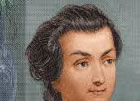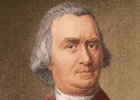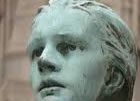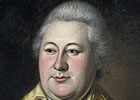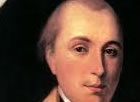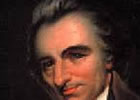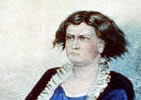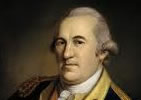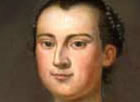Alexander Hamilton |
||||||||||||||||||||||||||||||||||||||||||||||||||||||
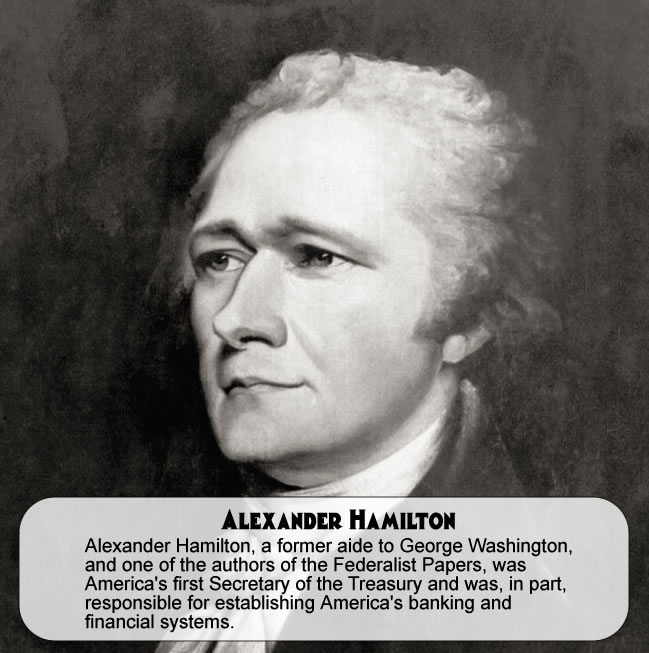 |
||||||||||||||||||||||||||||||||||||||||||||||||||||||
Alexander Hamilton was born January 11, 1755, on the Caribbean island of Nevis. Hamilton was involved in business from an early age. At age 12, Hamilton served as an apprentice at the Counting House of Nicholas Cruger and David Beekman. At age 15, Hamilton was put in charge of the business. Despite a lack of formal schooling during his adolescent years, Hamilton was an intelligent boy and knew both English and French. He was an excellent writer and was published for his descriptive account of a hurricane that ravaged the Caribbean islands. Friends of his family were impressed by his writing and paid for his formal schooling. Hamilton soon entered King’s College in New York City and earned a bachelor’s degree in 1774—in one year! Hamilton gained political prominence later that year when he traveled to Boston to show his support for the colonies. While in Boston, he delivered a powerful speech denouncing British policies and wrote two pamphlets attacking a clergyman’s opposition to the Continental Congress. During the American Revolution, Hamilton was commissioned as the captain of a company of artillery that defended Patriot interests at Long Island and White Plains. Hamilton’s military tactics won widespread praise and earned him a reputation for decisiveness and bravery. He was soon introduced to General George Washington who appointed him to his personal staff with the rank of lieutenant colonel. He became Washington’s personal secretary and gathered pivotal intelligence at the Battle of Monmouth in 1778. At Monmouth, Hamilton’s leadership and spirit helped rally retreating troops who promptly routed the British. The ambitious Hamilton later served at the Battle of Yorktown where he led a Patriot assault against the British. Alexander Hamilton married Elizabeth Schuyler in 1780 and eventually had eight children. In 1783, Hamilton was admitted to the New York State Bar after studying for three years. He soon opened his own law practice on Wall Street in New York City. He also served in Congress from 1782 to 1783, was elected to the Continental Congress, and founded the Bank of New York in February of 1784. Although Hamilton supported a Parliamentary-type government, he is most famous for his works regarding the US Constitution and the Federalist Papers. He was a staunch supporter of the Constitution and helped in its creation and execution. He was also the primary author of the Federalist Papers, a classic commentary on principles of government and American constitutional law. When George Washington was elected president, Alexander Hamilton was appointed the United States’ first Secretary of the Treasury. Hamilton is credited with the establishment of America’s financial system and took great care in establishing America’s credit at home and abroad. His opinions concerning the structure and function of the national bank were groundbreaking and are still the inspiration behind the English and German economic systems. Hamilton also established an American philosophy on foreign policy and influenced George Washington to assert a position of neutrality regarding the French Revolution. Hamilton resigned from the treasury in 1795 but remained one of Washington’s most trusted advisors. After returning to his New York law practice and serving in the military for two more years, Hamilton’s Federalist Party became divided. Hamilton disagreed with many of the policies implemented by president John Adams and sought to control his policy as well as members of his cabinet. He wrote a seething letter denouncing Adams that was intended for private circulation. Vice President Aaron Burr, however, published the letter which was distributed to the public. Burr’s actions stirred great anger in Hamilton, who promptly short-circuited Burr’s political aspirations for president and governor. In the presidential election of 1800, in which Burr was campaigning, Hamilton persuaded the House of Representatives that Burr was untrustworthy and urged them to vote for Thomas Jefferson. He did the same when Burr lost the election for governor of New York. Aaron Burr had finally had enough with Hamilton after this failure in New York. Burr challenged him to a duel on July 11, 1804. Burr won the duel and Hamilton died the next day from his wounds. Alexander Hamilton will always be remembered as one of America’s greatest economic minds. He is immortalized on the United States ten-dollar bill. |
||||||||||||||||||||||||||||||||||||||||||||||||||||||
Patriots |
||||||||||||||||||||||||||||||||||||||||||||||||||||||
|
||||||||||||||||||||||||||||||||||||||||||||||||||||||
